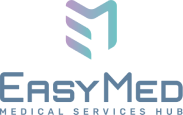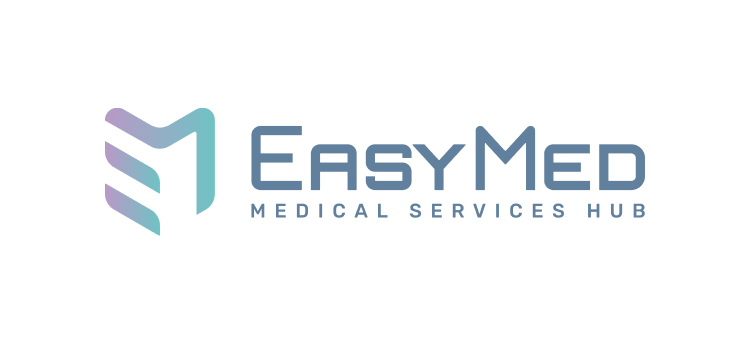
Liver ultrasound
Ultrasound examination of the liver is one of the key diagnostic methods that allows doctors to examine the liver in detail without surgery. Liver ultrasound is often used in the detection and monitoring of various liver diseases, including hepatitis, cirrhosis, fatty liver disease, and tumors.
Дополнительные процедуры:
- Лабораторный анализ мочи
- Элемент списка #2
- Элемент списка #3
Ultrasound of the liver with EasyMed
Cooperation with EasyMed gives patients access to the leading medical institutions in Israel specializing in liver ultrasound diagnostics. The professional team of EasyMed helps its clients to make an appointment for the procedure at a convenient time without waiting in an electronic queue and searching for the right clinic.
With EasyMed, liver ultrasound becomes convenient, fast, and efficient, providing patients with peace of mind and confidence in the quality and accuracy of medical diagnosis.
Indications for liver ultrasound
Ultrasound examination (ultrasound) of the liver is an important tool in diagnosing various diseases and conditions of this vital organ. Here’s a closer look at the indications for this test:
- Pain in the right upper quadrant: This area is often associated with liver pathologies. Ultrasound can rule out or confirm the presence of inflammatory processes, tumors, or other abnormalities.
- Appearance of jaundice: Jaundice of the skin and sclera often indicates liver problems, such as blockage of the biliary tract or hepatitis.
- Changes in blood counts: Abnormal liver function tests on blood chemistry, such as elevated levels of ALT (alanine aminotransferase), AST (aspartate aminotransferase), bilirubin, or alkaline phosphatase, may be indicative of liver disease.
- Post-injury assessment: If liver injuries are suspected after blows, falls, or accidents, ultrasound is used to assess the extent of the damage.
- Chronic disease control: In patients with chronic liver disease such as hepatitis or cirrhosis, ultrasound is performed regularly to monitor the condition of the organ.
- Suspected tumors: Ultrasound of the liver helps detect benign (hemangiomas, adenomas) and malignant (hepatocellular carcinoma).
Also, before surgery on the liver or nearby organs, an ultrasound of the liver is performed to assess the condition and anatomy of the organ.
Importantly! In some cases, in addition to liver ultrasound, other tests may be required for a comprehensive diagnosis: a biochemical blood test.
Preparation for the procedure
Proper preparation for a liver ultrasound is key to obtaining accurate results. Here are detailed guidelines for preparation:
- Following a special diet 2-3 days before the procedure: Eliminate foods that contribute to gas formation in the intestines. These are vegetables, legumes, brown bread, carbonated drinks, and dairy products.
- Restriction of food and liquids: Refrain from eating 8-12 hours before the examination. A small amount of pure still water is acceptable.
- Use of sorbents and prokinetics: Sometimes, your doctor may recommend medications to reduce gas and improve gastrointestinal motility.
- Avoiding certain medications: In consultation with your doctor, you may need to temporarily stop taking medicines that affect intestinal motility or cause gas.
- Smoking limitation: Smoking can contribute to gas and intestinal spasms, so it is recommended to refrain from smoking for a few hours before the test.
For comfort, wear loose clothing that can be easily removed or lifted to access the study area.
Importantly! An EasyMed specialist will notify the patient of the necessary actions and restrictions before the ultrasound. It is imperative to report the presence of chronic diseases, allergies to medications, and current medication intake.
How is a liver ultrasound performed?
The liver ultrasound procedure is non-invasive and safe, usually takes 15 to 30 minutes, and is performed in the following order:
- Arrival at the ultrasound room: The patient comes for the procedure; he must have a referral from the doctor and a medical card with him.
- Preparation for the examination: The patient is asked to lie down on a special medical table. Depending on the equipment and technique of the specialist, it may be necessary to undress to access the study area partially.
- Gel application: A special gel is applied to the skin of the abdomen. The gel is necessary to improve the contact of the transducer with the skin and ensure the quality transmission of ultrasound waves.
- Scanning: The doctor gently runs the transducer over the skin in the liver area. The transducer sends ultrasound waves reflected from the liver tissue, forming an image on the monitor.
- Interpretation of images: The doctor analyzes the images obtained in real-time, assessing the size, contours, structure of the liver, and possible pathological changes.
After the scan, the gel is removed from the skin, and the patient can get dressed. The study results can be provided immediately or require additional analysis and documentation.
Importantly! Despite the simplicity and safety of the procedure, it is important to take the preparation seriously and strictly follow the doctor’s recommendations. If unusual changes or suspicious lesions are detected, the doctor may recommend additional tests to clarify the diagnosis.
Diagnostic Capabilities of Liver Ultrasound
Ultrasound of the liver is an important tool in a doctor’s hands to assess the liver’s health and functionality. Here are the key aspects that can be evaluated with a liver ultrasound:
- Assessment of the anatomy of the liver: Ultrasound can assess the size, shape, and contours of the liver and detect structural abnormalities such as enlargement (hepatomegaly) or changes in shape, which may indicate various diseases.
- Examination of tissue structure: Ultrasound of the liver helps to determine the homogeneity of the liver tissue, identify nodules, cysts, and tumors, and assess the degree of fibrosis or steatosis (fat infiltration).
- Diagnosis of neoplasms: Ultrasound effectively detects benign tumors (such as hemangiomas or adenomas) and malignant tumors (hepatocellular carcinoma).
- Evaluation of the biliary tract and gallbladder: A liver ultrasound can detect gallstones, bile ducts, and other pathologies such as inflammation (cholecystitis).
- Examination of the blood supply to the liver: With the help of Doppler ultrasound, it is possible to assess the blood flow in the hepatic arteries, veins, and portal vein to detect signs of portal hypertension or thrombosis.
Ultrasound is also used to assess the condition of the liver after surgical interventions, including liver transplantation.
Importantly! Despite its high informative value, ultrasound has limitations. It sometimes requires supplementation with other diagnostic methods, such as computed tomography (CT), magnetic resonance imaging (MRI), or biopsy. The accuracy of ultrasound results largely depends on the equipment’s quality and the examination specialist’s qualifications.
Contraindications
Ultrasound examination of the liver is one of the safest and most affordable diagnostic methods. Still, there are certain restrictions and contraindications to its implementation, which are important to consider:
- Recent abdominal surgery: If the patient has recently had abdominal surgery, especially if it involves large incisions or skin injuries, the ultrasound may be postponed until the wounds have healed completely.
- Skin diseases in the study area: The presence of active inflammatory processes, infections, open wounds, or burns on the skin of the abdomen may be an obstacle to ultrasound as it increases the risk of infections.
- Severe Patient Conditions: Critically ill patients in intensive care or unable to independently assume the necessary position for examination may not be suitable for standard ultrasound.
Excessive gas formation in the intestines or significant obesity can make it difficult to obtain high-quality images and reduce the informative value of the study, but this is not an absolute contraindication.
Importantly! In cases where ultrasound is difficult or impossible due to the reasons mentioned above, the doctor may recommend alternative diagnostic methods such as computed tomography (CT) or magnetic resonance imaging (MRI).
EasyMed – Your Reliable Diagnostic Assistant
EasyMed offers its customers a personalized and efficient solution for scheduling a liver ultrasound, providing a quick selection of a clinic that fits each patient’s medical needs. We recognize the importance of accurate liver diagnostics for overall health and provide services to optimize this process.
Our team provides online services for scheduling diagnostic tests and actively cooperates with leading medical institutions with state-of-the-art equipment. We consider everything from the clinic’s geographical location to the availability of highly qualified specialists, which is especially important when evaluating conditions such as fatty liver disease, hepatitis, or other liver diseases.
In addition, EasyMed offers an individual approach to the organization of liver ultrasound, taking into account each client’s personal preferences. We aim to make the diagnostic process as convenient and accessible as possible.
Want to make an appointment for a review?
Fill in the following details
and we will contact you as soon as possible
Faq
Frequently asked Questions
We provide personalized healthcare services. Our main goal is to provide you with a quick appointment for the necessary medical examination or consultation with a doctor.
There is no need to wait several months: with us you will get to the right specialist in the shortest possible time.
Waiting times depend on the complexity of the procedure and the doctor’s profile. We can make an appointment with some specialists within 24 hours. For complex procedures, the waiting period of which reaches several months, you will be treated with us within 2-3 weeks.
There are a number of procedures (for example, complex types of MRI) that the patient can wait about a year and a half. We can reduce this period to 3 months.
We cooperate with leading specialists in various fields, as well as with top clinics and laboratories throughout Israel and abroad.
Our doctors use the latest treatment protocols and the most advanced technologies. The clinics we work with are equipped with modern equipment that provides the most accurate results.
Our partners are experienced professionals who have earned trust due to their experience, knowledge and professionalism.
We operate in all regions of Israel. Your appointment will be scheduled at the location most convenient for you.
The cost of services depends on the complexity of the procedure and the doctor’s profile. For accurate information and cost calculation, leave your details or call: 033083020
Yes, absolutely. Confidentiality and protection of our clients' personal information is one of our key priorities. We strictly adhere to all legal and ethical standards to ensure the maximum security of your data.
Our specialists will check whether in a particular case a refund from the insurance company is due. If yes, then after completing the procedure, a receipt will be sent to the insurance agent, who, in turn, makes a request to the insurance company to return the amount due to the patient for the procedure completed.



